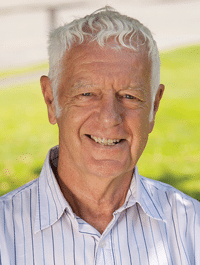
Are humans the accidental products of a blind and uncaring universe? Or are they the beneficiaries of a cosmic order that was planned beforehand to help them flourish?

Join us on March 26 on the campus of Northwest University in Kirkland, WA, as geneticist and author Dr. Michael Denton explores scientific evidence showing how both the universe and the Earth are exquisitely fine-tuned to make human life and the life of other organisms possible. The event is free and open to the public, but registration is required due to limited seating.
That’s Thursday, March 26, at 7:30 pm. The address: Northwest University, Argue Health and Sciences Center, Room 104, 5520 108 Ave. NE, Kirkland, WA.
Dr. Denton is a Senior Fellow with Discovery Institute’s Center for Science & Culture. He holds an MD from Bristol University and a PhD in biochemistry from King’s College in London. From 1990-2005, he was a Senior Research Fellow in the Biochemistry Department at the University of Otago in Dunedin, New Zealand.
He is the author of two path-breaking books, Nature’s Destiny: How the Laws of Biology Reveal Purpose in the Universe and Evolution: A Theory in Crisis, as well as many technical articles in major scientific journals.
Dr. Denton’s research has led to the identification of several new retinal disease genes including the gene used in the first successful gene therapy trial at Moorfields Eye Hospital in London in 2009.
Image credit: NASA/JPL-Caltech/UCLA/MPS/DLR/IDA.







































